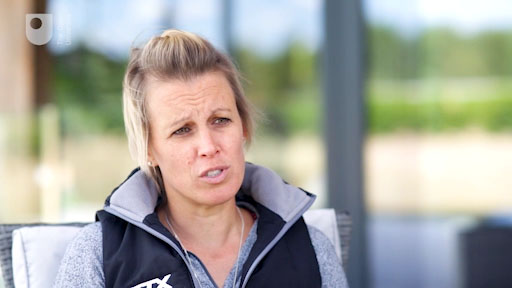4 Coming out the other side: coping with retirement
If you think back to the athletic career transition model (Alfermann and Stambulova, 2007) that you were introduced to in Session 1, you may remember that having the right coping strategies in place can determine whether transitions are effective or ineffective. Below is an adapted version of this model which has had some additions to illustrate the different coping strategies and interventions that can be implemented to assist a successful transition.

Transcript: Video 2
Activity 4 Coping strategies in practice
Listen to this short interview with Alex Danson who talks a bit more about how she has coped with her retirement from hockey. As you listen to Alex speak, note down what coping strategies led to her having a positive retirement experience.

Transcript: Video 3
Discussion
Alex is an example of an athlete who was forced to retire while still potentially at the top of her game, due to a life-changing injury. However, having had significant success she also felt she had achieved a lot in her sport and was able to step away having lived her career with no regrets. What does become clear is the importance of planning and how being mentally prepared for life after sport allowed Alex to successfully navigate her retirement. She talks about having continued to study and gain additional work experience and always being aware that the career of an elite athlete can come to an end suddenly for a variety of reasons.
Although coping strategies and interventions can support an athlete through retirement, as you’ve seen so far in this session, an athlete’s experience of retirement is individual. In the final section of this session you will look at one example of an athlete who came out of retirement as she missed the sport too much.
